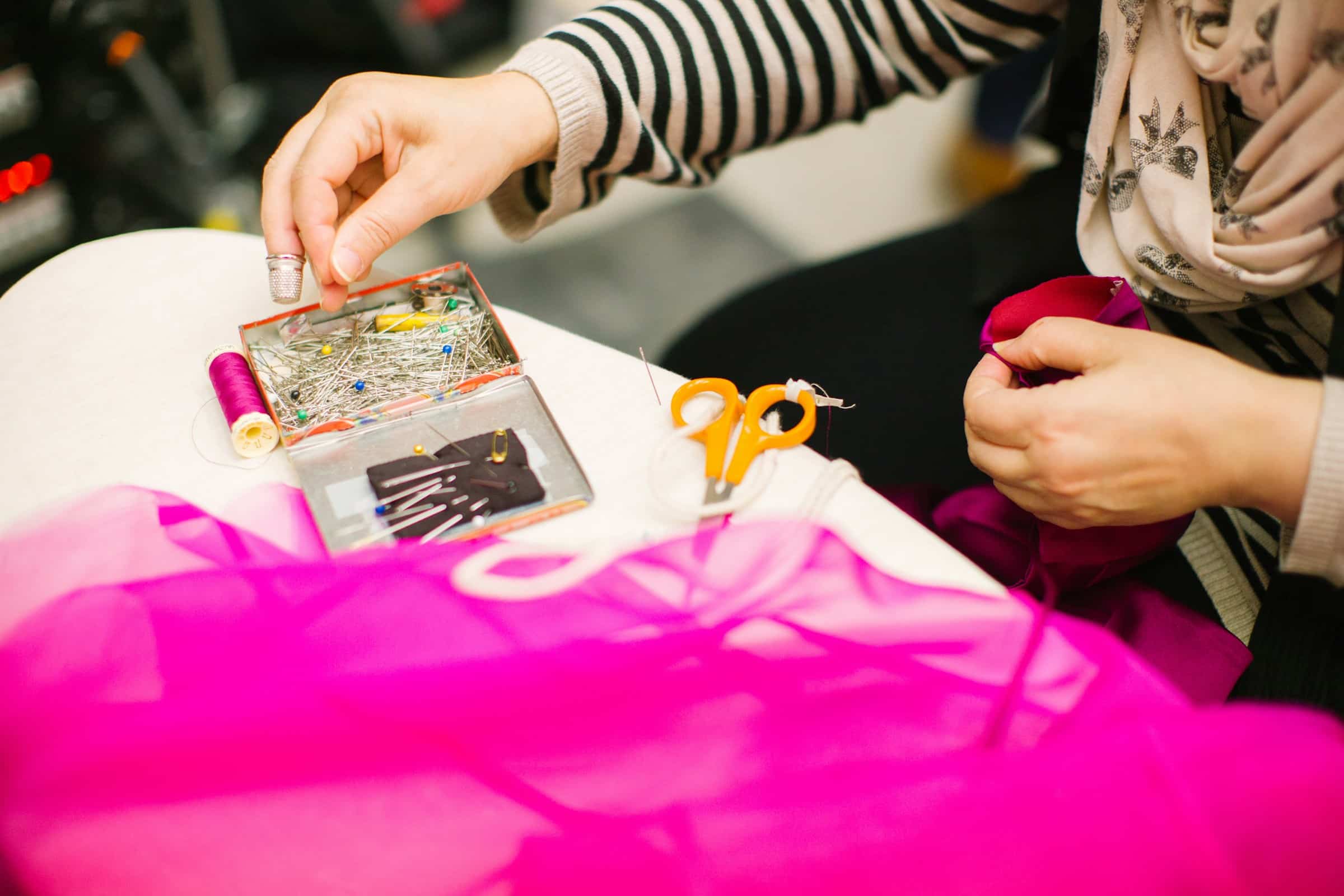What Are the Challenges and Opportunities for UK Fashion Startups in Sustainable Sourcing?

The transformation of the fashion industry towards sustainability is not only about a shift in consumer behavior; it’s also about how the industry sources its materials, designs its products, and manages its supply chains. The sustainability movement is now a significant factor that shapes the business strategies of startups in the industry, particularly in the UK. This article will delve into the challenges and opportunities these startups face in sourcing sustainably.
The Sustainability Challenge in the Fashion Industry
The fashion industry has long been under the radar for its environmental impact. A significant part of this impact comes from the way the industry sources its materials. The production processes often involve the use of harmful chemicals, large amounts of water, and energy, contributing to pollution and waste.
Avez-vous vu cela : How to Leverage Digital Twin Technologies in UK Property Development?
For a long time, consumers were not fully aware of these issues. However, recent years have seen a shift in consumer attitudes, with more focus on sustainability. Consumers are now more conscious of their buying choices and are looking for clothing and other fashion products that align with their values.
This shift in consumer behavior poses both challenges and opportunities for fashion startups. They are now compelled to rethink their sourcing strategies, making sure they align with sustainability principles. This calls for a shift from linear production models – where resources are used once and then discarded – to circular models, where resources are reused and recycled as much as possible.
Sujet a lire : How Can UK SMEs Benefit from Implementing Lean Manufacturing Techniques?
The Challenges of Sustainable Sourcing
Adopting sustainable sourcing practices in the fashion industry is not without its challenges. For startups, these challenges can be even more daunting.
Firstly, sourcing sustainable materials can be costly. Organic cotton or recycled polymers, for instance, are often more expensive than their conventional counterparts. For startups that are already grappling with tight budgets, this can be a significant barrier.
Secondly, startups may face difficulties in finding suppliers who can provide the quantity and quality of sustainable materials they need. This is especially true for startups that wish to produce their products at scale.
Finally, startups may also face challenges in convincing consumers about the sustainability credentials of their products. There’s a certain level of skepticism among consumers about brands’ sustainability claims, and this skepticism can be even higher for new brands that have yet to establish their credibility.
Opportunities in Sustainable Sourcing
Despite the challenges, sustainable sourcing also presents numerous opportunities for fashion startups.
Firstly, it allows startups to differentiate themselves in a crowded market. By positioning themselves as sustainable brands, startups can appeal to a growing demographic of consumers who are conscious of their environmental impact.
Secondly, sustainable sourcing can also open up new avenues for innovation. Startups can explore innovative materials, such as plant-based textiles or materials made from waste products, presenting opportunities to create unique and exciting products.
Thirdly, sustainable sourcing can lead to cost savings in the long run. While the initial investment may be higher, the use of sustainable materials can lead to lower waste and energy costs over time.
Sustainable Sourcing Strategies for Startups
For startups looking to embrace sustainable sourcing, there are several strategies they can adopt.
One of these strategies is to incorporate circularity into their business models. This means designing products in a way that they can be easily recycled or reused, reducing waste and maximizing the usage of materials.
Startups can also collaborate with suppliers who share their sustainability commitments. By forming partnerships with these suppliers, startups can ensure a consistent supply of sustainable materials.
In addition, startups can also use certification schemes to validate their sustainability claims. These certifications can provide consumers with assurance about the brand’s sustainability practices, helping to build trust and credibility.
The Role of Technology in Sustainable Sourcing
Technology has a crucial role to play in advancing sustainable sourcing in the fashion industry. Startups can leverage technology in various ways to enhance their sustainability efforts.
Digital tools can help startups track and manage their supply chains more effectively, ensuring transparency and accountability. They can also use technologies like 3D printing or digital prototyping to reduce waste in the production process.
In addition, startups can also make use of technology to educate consumers about their sustainability efforts. Through virtual reality or augmented reality, for instance, startups can give consumers an immersive experience of their production processes, helping them understand the brand’s commitment to sustainability.
While the challenges of sustainable sourcing are substantial, the opportunities are limitless. As the fashion industry continues to evolve, the startups that can successfully navigate these challenges and harness these opportunities are poised to lead the way in sustainable fashion.
Leveraging Sustainable Practices for a Competitive Edge
In an increasingly crowded fashion market, differentiation is key. By embracing sustainable practices, startups can gain a competitive edge, appealing to a significant segment of consumers who prioritize eco-friendly and ethical considerations in their purchasing decisions.
Consumers are becoming more educated and conscious about the environmental and social impacts of their consumption, leading to increased demand for sustainable and ethical fashion. This is a significant opportunity for fashion startups to carve out a niche and build a strong, loyal customer base.
Moreover, adopting sustainable sourcing can lead to innovative and novel product lines. Working with sustainable materials presents an opportunity to experiment with new designs and create unique, high-quality products. This can involve using plant-based textiles, recycled materials, or even upcycling waste products, contributing to the circular fashion movement.
Sustainable practices also provide a long-term financial advantage. While the initial costs might be higher, investments in sustainable sourcing can lead to significant savings in the form of waste reduction, efficiency improvements, and decreased reliance on non-renewable resources. In addition, embracing a sustainable ethos can improve a brand’s reputation, potentially increasing sales and customer loyalty.
However, it’s important for startups to be authentic in their sustainability claims, as consumers are often skeptical of greenwashing. Brands should ensure transparency in their supply chains, fair working conditions, and genuinely sustainable materials and processes.
Conclusion: The Future of Sustainable Fashion Startups
A commitment to sustainability is no longer optional for fashion brands – it is now a necessity. Consumers increasingly demand transparency, ethical practices, and products that are kind to the environment. For UK fashion startups, this means embracing sustainable sourcing and making it a core part of their business models.
The challenges of sustainable sourcing – cost, availability of materials, and consumer trust – are substantial, but the opportunities outweigh these obstacles. Startups that successfully navigate these challenges can position themselves as leaders in the sustainable fashion movement, gaining a competitive edge and building a loyal customer base.
Technology also plays a key role, offering tools to manage supply chains, reduce waste, and educate consumers. By leveraging these technologies, startups can enhance their sustainability efforts and ensure transparency and accountability.
The future of fashion lies in sustainability, and UK startups have a unique opportunity to drive this change. Through their creativity and innovation, they can transform the fashion industry, contributing to a more sustainable and ethical future.
